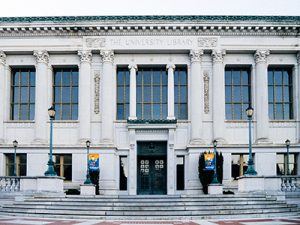Sarah Higginbotham, Senior Commissioning Editor at Wiley, joined us for an engaging presentation on how to publish as a book author and or editor in The Electrochemical Society Book Series. A video recording is now available for open-access viewing. View it now!
 The Society and our publishing partner, IOP Publishing, are committed to helping users stay safe online during the peer review process. This is increasingly important with the ever-growing cyber threats that we face on a regular basis.
The Society and our publishing partner, IOP Publishing, are committed to helping users stay safe online during the peer review process. This is increasingly important with the ever-growing cyber threats that we face on a regular basis.
Whether you are an author, reviewer or editor, follow these four key security tips: (more…)
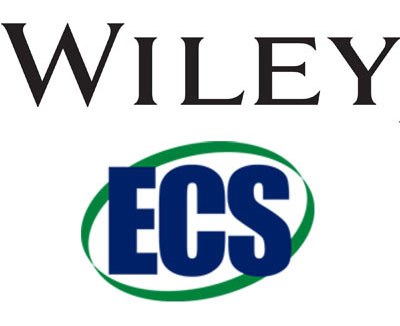 The Electrochemical Society and Wiley have renewed a publishing partnership to enhance ECS’s book series with the goal of publishing multiple titles per year. ECS’s long-time sponsored series in publishing cooperation with Wiley provides authoritative, detailed accounts on specific topics in electrochemistry and solid state science and technology. Through this partnership, the Society is able to offer the research community access to world-class editors, marketers, and product designers to ensure that from writing the first word to reaching the first reader, the ECS community has a robust support network of publishing professionals to help an author develop and publish their best work. (more…)
The Electrochemical Society and Wiley have renewed a publishing partnership to enhance ECS’s book series with the goal of publishing multiple titles per year. ECS’s long-time sponsored series in publishing cooperation with Wiley provides authoritative, detailed accounts on specific topics in electrochemistry and solid state science and technology. Through this partnership, the Society is able to offer the research community access to world-class editors, marketers, and product designers to ensure that from writing the first word to reaching the first reader, the ECS community has a robust support network of publishing professionals to help an author develop and publish their best work. (more…)
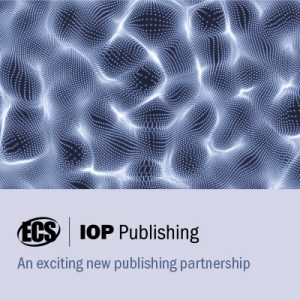 The Electrochemical Society has some exciting news! ECS has selected IOP Publishing (IOPP) as its journals publishing partner.
The Electrochemical Society has some exciting news! ECS has selected IOP Publishing (IOPP) as its journals publishing partner.
Starting in 2020, IOPP will partner with ECS in the publication of the Journal of the Electrochemical Society and the ECS Journal of Solid State Science and Technology and the hosting of ECS Transactions, ECS Meeting Abstracts, and Interface as well as the hosting of the archives for ECS’s retired publications—ECS Electrochemistry Letters, ECS Solid State Letters, Electrochemical and Solid State Letters, and ECS Proceedings Volumes.
Christopher Jannuzzi, executive director and CEO of ECS, said: “ECS has a 117+ year reputation for creating outstanding, peer-reviewed periodicals, conference proceedings, and magazines. We have a long-standing commitment to ensure the technical quality of the works published, as well as the integrity and validity of the peer review our community provides. (more…)
The urgency for open access publishing has been felt for some time. The strain of paywalls and expensive scholarly publishing business models have limited access to academic papers and research, causing some to take matters into their own hands.
The Electrochemical Society is one of those to take action. Each year, ECS participates in International Open Access Week by taking down paywalls to the entire ECS Digital Library, giving the world a preview of what complete open access to peer-reviewed scientific research will look like. ECS is also the founder of the Free the Science initiative, which aims to make the Society’s high quality, peer-reviewed research free for everyone to read and free for authors to publish. In addition, in honor of Free the Science, the Society also offers another paywall-free week to the ECS Digital Library. This year marking the Society’s 3rd annual Free the Science Week, taking place April 1-7, where thousands of scientific articles and abstracts will become free to access.
And, it looks like ECS is far from alone in these efforts. (more…)

Image: CC0 Public Domain
South Korean universities have successfully negotiated a better pricing deal from publishing giant Elsevier, according to a report from Science Magazine. This deal comes after a standoff between the consortium of hundreds of institutions and the publisher, where database access contracts were refused due to exorbitant price increases.
Earlier this month as Elsevier threated to cut access to ScienceDirect, a database containing content from over 3,500 academic journals, the two parties came to an agreement of a subscription price hike of between 3.5 and 3.9 percent, instead of the initial 4.5 percent as pushed by Elsevier.
“We want Elsevier to abolish the minimum flat rate system, in which our universities have to pay for digital content that nobody reads,” Lee Chang Won, secretary general of the Korea University & College Library Association, told Science Magazine.
South Korea’s pushback against Elsevier follows the trend of many similar efforts still underway in Germany, including Projekt DEAL. While over 200 German institutions have already canceled their Elsevier subscriptions in protest of skyrocketing prices, the publisher has still not terminated access, looking to continue negations.

Image: CC0 Public Domain
A new article from The Scholarly Kitchen provides a good summary (and a short read) of a recent action against a particular predatory publisher (OMICS) and why that’s important. As the last, independent nonprofit publisher in the top-ranked journals in our field, ECS lives up to its obligations to the community to maintain very high standards: dedication to mission, rigorous peer review, and transparency in our open access publishing practices.
Commercial publishers represent a major challenge for a scholarly society like ECS to uphold those standards and meet our mission; but the open access environment has created even more challenges. Authors have these same challenges. So it bears repeating that there are some “best practices” to which we should all do our best to adhere: carefully vet journals where we are submitting; create awareness with our various constituents (members, students, colleagues) that there are “good” and “not good” places to publish; and do a periodic Web scan of own own names from time to time to make sure we have not been added to an editorial or advisory board without our knowledge, which can compromise our personal identity and standing in the community.
ECS will continue to work toward its Free the Science goals to create a more open, but responsible, scholarly communications ecosystem.
Open Access Publishing Platform for African Researchers
Posted on November 29, 2017 by Amanda Staller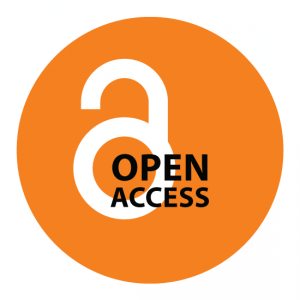 A new open access publication platform for African researchers is set to launch in early 2018. The African Academy of Sciences (AAS) has partnered with open access publisher F1000 to launch AAS Open Research, which will provide a transparent, post-publication peer review system for AAS-funded and affiliated researchers.
A new open access publication platform for African researchers is set to launch in early 2018. The African Academy of Sciences (AAS) has partnered with open access publisher F1000 to launch AAS Open Research, which will provide a transparent, post-publication peer review system for AAS-funded and affiliated researchers.
By using the F1000 publishing platform, African researchers will be able to immediately publish their work online and gain access to an efficient, transparent peer review. Once the article appears online, F1000 will arrange a peer review that will appear alongside the article. The authors of the work will then have the opportunity to make recommended changes based on the review. Upon passing peer review, the papers will be indexed in abstract databases.
The implementation of this system aims to level the playing field for research in low-income countries, where the perception of the quality of research may be lower than that of higher-income countries. Additionally, it also allows for African researchers to quickly and easily find a home for their work.
Early Career Researchers as Key Partners for Dislodging Legacy Publishing Models
Posted on September 29, 2017 by Amanda StallerBy: Shane Sutton, Dean of University Libraries at the University of Arizona
 It’s been a busy summer for open access (OA) in Europe. On one hand, nationally coordinated efforts in places like Finland and Germany have sought (unsuccessfully so far) to pressure Elsevier into better subscription pricing and OA options. On the other hand, a group of early career researchers (ECRs) at the University of Cambridge are looking to mobilize fellow ECRs to embrace open models that are not controlled by commercial entities. In my view, these divergent approaches illustrate why we should focus our collective energies away from strategies in which commercial interests retain control under new economic conditions (see also, proposals to flip subscription payments to APCs), and towards working with ECRs and others who envision a return of scholarly dissemination responsibility to the academy.
It’s been a busy summer for open access (OA) in Europe. On one hand, nationally coordinated efforts in places like Finland and Germany have sought (unsuccessfully so far) to pressure Elsevier into better subscription pricing and OA options. On the other hand, a group of early career researchers (ECRs) at the University of Cambridge are looking to mobilize fellow ECRs to embrace open models that are not controlled by commercial entities. In my view, these divergent approaches illustrate why we should focus our collective energies away from strategies in which commercial interests retain control under new economic conditions (see also, proposals to flip subscription payments to APCs), and towards working with ECRs and others who envision a return of scholarly dissemination responsibility to the academy.
One aspect of the Finnish No Deal, No Review boycott that seems especially telling is that signees refuse to serve as reviewers or editors for Elsevier journals, but make no such commitment in terms of ceasing to submit articles to those same journals for publication. That is probably a bridge too far for many who feel compelled to meet traditional promotion and tenure expectations of publishing in prestigious journals that are often controlled by publishers such as Elsevier. While the Finnish position is admirable in a general sense, even if the demands for better economic terms are met, Elsevier would remain a profit-driven conduit through which dissemination occurs, though with slightly less robust profit margins.
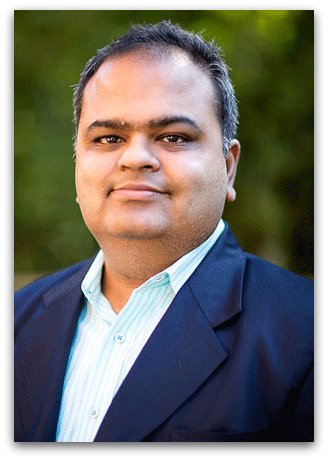 Venkat Subramanian is the Washington Research Foundation Innovation Professor of Chemical Engineering and Clean Energy at the University of Washington. His research efforts focus on computational models to bridge next-generation energy materials to battery management systems. Subramanian has recently been named a new technical editor of the Journal of The Electrochemical Society, concentrating in the electrochemical engineering Topical Interest Area.
Venkat Subramanian is the Washington Research Foundation Innovation Professor of Chemical Engineering and Clean Energy at the University of Washington. His research efforts focus on computational models to bridge next-generation energy materials to battery management systems. Subramanian has recently been named a new technical editor of the Journal of The Electrochemical Society, concentrating in the electrochemical engineering Topical Interest Area.
What do you hope to accomplish in your role as technical editor?
I am humbled and honored to be a Journal of The Electrochemical Society technical editor and I hope to help improve the impact factor and reach of our journal without losing the rigor we are known for. In particular, the electrochemical engineering topical interest area serves a critical role of taking fundamental electrochemistry to industrial applications. My current aim is to promote both traditional and new industrial applications of electrochemistry across different scales.
What are some of the biggest barriers for authors and for readers in the current publishing model?
Once I had a proposal rejected in my early academic career wherein the reviewer criticized me for not being aware of a recent article. I called the program officer to convey my unfortunate situation of not having access to the specified journal at my institution. While there are interlibrary loans or other such mechanisms, they are not optimal for making progress in research. Research requires instantaneous and immediate access. If you don’t have it, you lose out to your competitors who have such access. Note that every proposal is (and should be) reviewed on its merit and not resources available at a particular institution. Open access is critical for researchers and scientists.
What is the role of the Journal Impact Factor in scientific publishing?
Whether we like it or not, perception matters. Many academic departments have become highly interdisciplinary. Impact factor plays a big role in tenure and promotion decisions and there may be only one faculty member working in the field of electrochemistry. While I personally don’t read or benefit much from journals with high impact factor*, I will strive hard to promote and improve the impact factor of the Journal of The Electrochemical Society and the perception about ECS journals in the scientific community.


